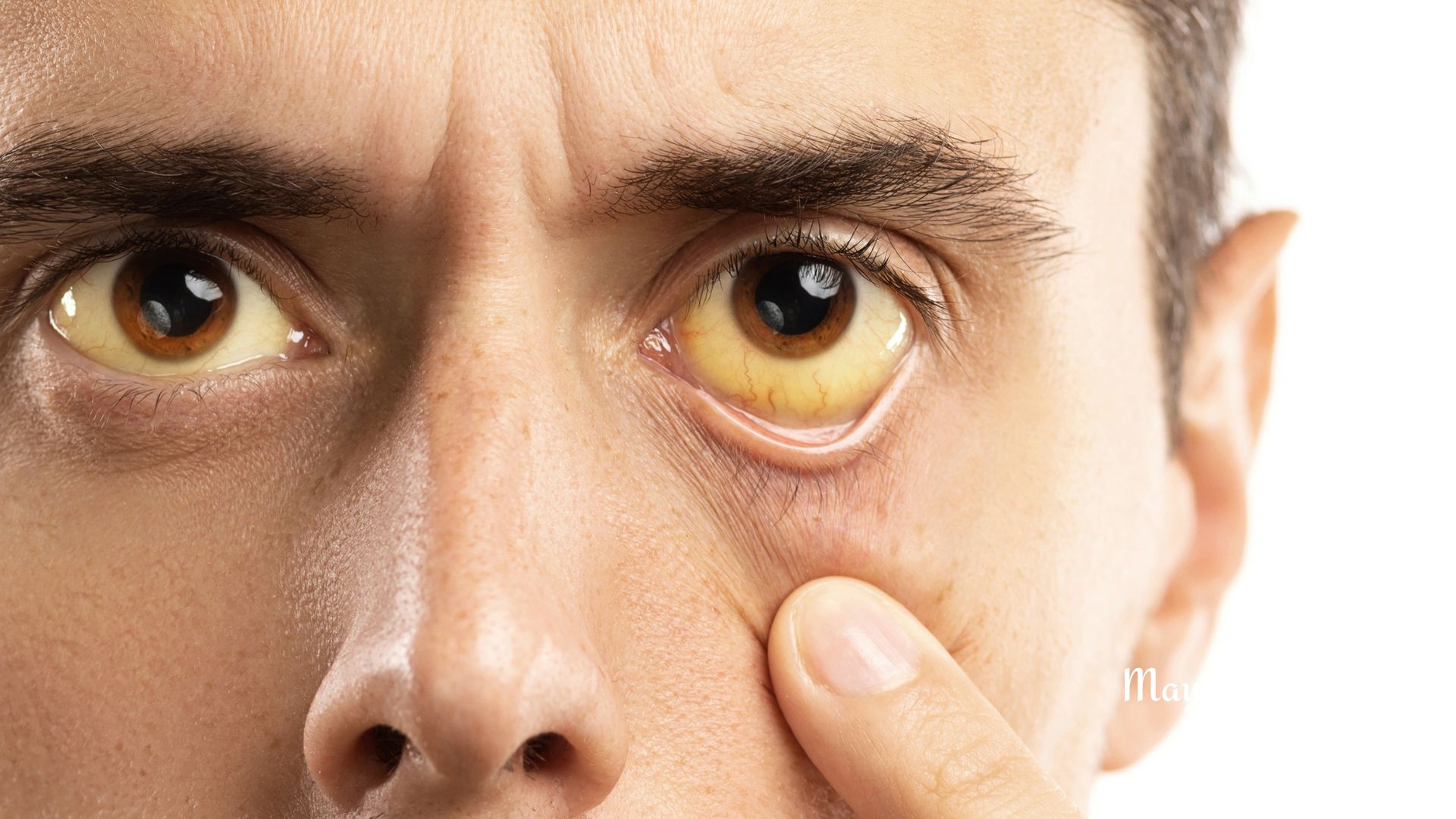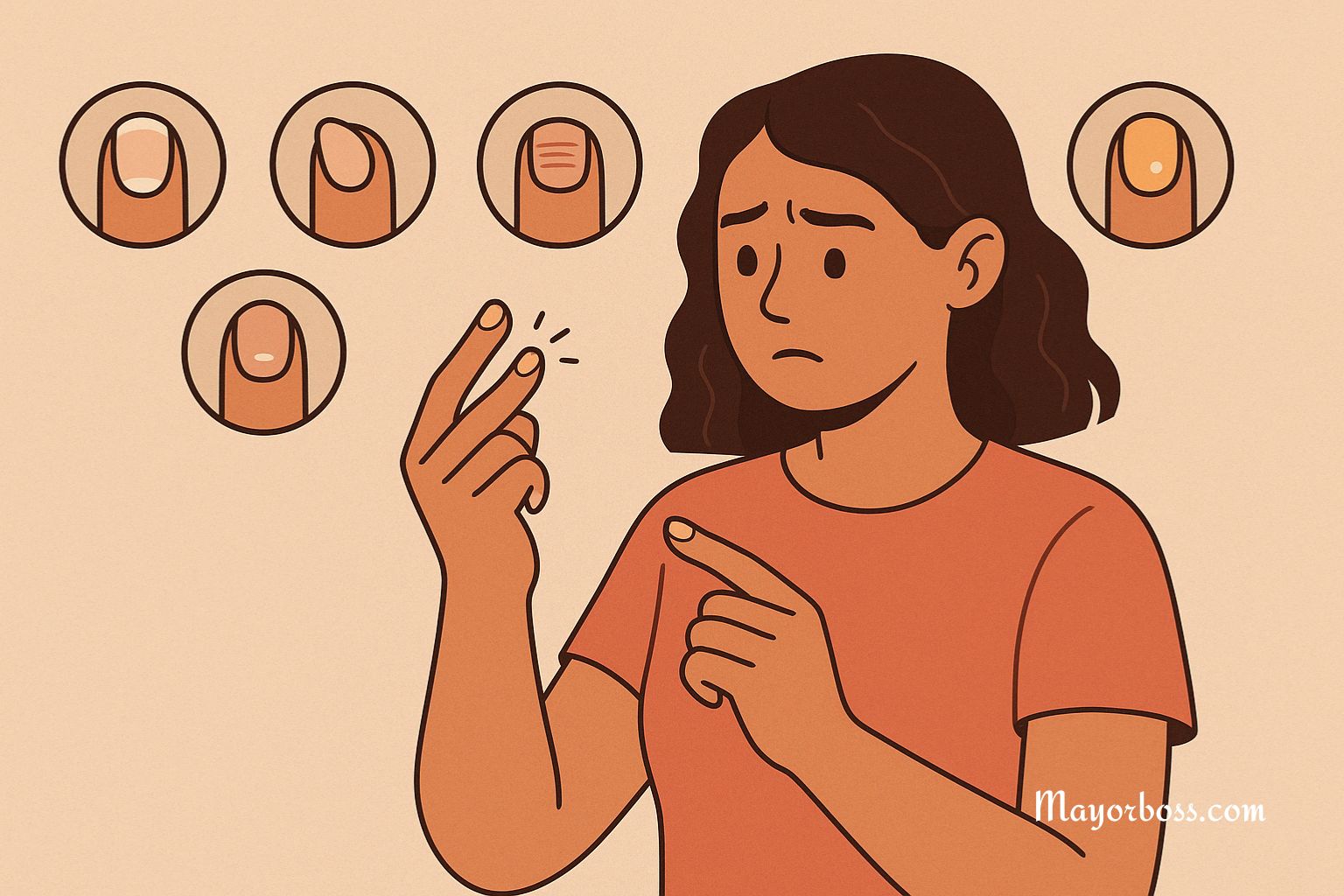Jaundice in Adults: What to Do
Brief summary: Jaundice is a condition that turns the whites of your eyes and your skin a yellow color. It happens when there’s too much of a substance called bilirubin in your blood. This might be due to problems with your liver, gallbladder, or pancreas. While it might look scary, the yellow color itself isn’t harmful. But jaundice can be a sign of a serious health problem, so you need to know what to look for and when to see a doctor.
What is Jaundice?
Jaundice is not a disease itself but a symptom. It shows up as a yellowish tint on your eyes and skin. It’s like a warning sign that tells you something is wrong in your body. So you should get immediate medical help.

How Does It Happen?
Your red blood cells break down all the time, and this process creates bilirubin. Your liver usually takes care of it, but if your liver isn’t working well or if something else is wrong with your digestive system, the bilirubin can build up. That’s what gives you the yellow color.
Causes of Jaundice
There are a lot of things that can cause jaundice. Here are some of the most common ones:
Problems with the Liver
- Hepatitis: This is an infection in your liver.
- Alcohol-related liver disease: Drinking too much alcohol over time can hurt your liver.
- Cirrhosis: This is long-term damage to your liver, often from alcohol or hepatitis.
Issues with the Gallbladder
- Gallstones: These are small, hard bits that can block the tubes in your gallbladder.
- Gallbladder inflammation: Sometimes, your gallbladder can get swollen and irritated.
Other Causes
- Pancreatic cancer: This can block the tubes that carry bilirubin.
- Blood disorders: Some diseases that affect your blood can cause jaundice too.
Symptoms
If you have jaundice, you might notice:
- Yellow eyes and skin
- Dark urine
- Pale-colored poop
- Tiredness
- Stomach pain
What to Do if You Think You Have Jaundice
Jaundice is like a warning signal, and you shouldn’t ignore it. If you notice any of these signs, you should talk to a doctor right away. They can figure out what’s going on and help you get better. Seeing a doctor quickly is important because finding the problem early often makes it easier to treat.
How is Jaundice Treated?
The doctor will ask you questions, check you over, and maybe do some tests. This helps them figure out why you have jaundice. Once the doctor knows what’s wrong, they’ll treat the problem that’s causing the jaundice. This might mean taking medicine, changing your diet, or even having surgery.
Your doctor might also tell you things you can do at home to feel better. This could include resting more, eating healthy foods, and avoiding alcohol.
In general, it can be said that jaundice in adults is something that you should take seriously. While the yellow color is not harmful, it’s a signal that something might be wrong inside your body. Knowing what to look for and when to seek help can make a big difference in your health.
Frequently Asked Questions
Can Jaundice Be Prevented?
Some causes of jaundice can be prevented, while others cannot. To help keep your liver healthy and lower your risk:
- Avoid excessive alcohol consumption.
- Get vaccinated for hepatitis if you’re at risk.
- Practice safe sex and avoid sharing needles, as some types of hepatitis are spread this way.
- Eat a balanced diet and maintain a healthy weight.
Is Jaundice Contagious?
Jaundice itself is not contagious, but some of the diseases that can cause jaundice, such as hepatitis, can be spread from person to person. If you have jaundice, it’s essential to find out the cause and follow your doctor’s advice to prevent spreading any underlying infections.
How Long Does It Take for Jaundice to Go Away?
The time it takes for jaundice to go away depends on the cause. If it’s due to a temporary problem, like a minor infection, it might clear up in a few weeks with proper treatment. If it’s caused by a more serious condition, like liver disease, it might take longer, and ongoing treatment may be needed. Your doctor will be the best person to give you an idea of how long it will take in your specific situation.
Further Reading: Jaundice in Babies: What You Need to Know






